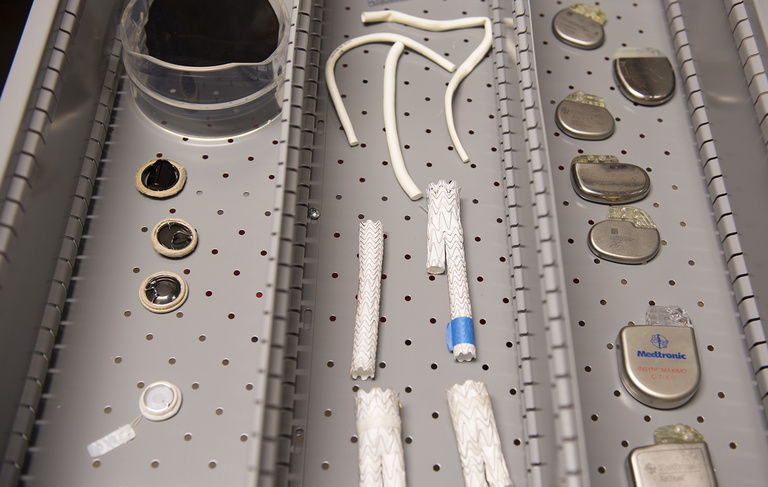The University of Iowa College of Engineering has received an $819,786 grant from the Roy J. Carver Charitable Trust to develop a medical device design laboratory opening this fall on campus.
Engineering faculty Joe Reinhardt, Nicole Grosland, and Sarah Vigmostad were awarded the grant—matched by the UI Department of Biomedical Engineering—to establish a new lab in the Seamans Center for the Engineering Arts and Sciences. It is the third UI biomedical engineering lab funded by the Carver Charitable Trust.

Vigmostad says the new Carver Medical Device Design Lab will be equipped with machines and tools capable of helping engineers design and produce industry-standard medical device prototypes. The lab will be more advanced than the college’s current facilities, which she says are better outfitted for creating early-stage prototypes.
Students would be able to use the Carver lab to design and refine devices like stents, small mesh tubes used to treat narrow or weak arteries, and catheters, thin tubes that have a variety of medical uses.
“This lab will give biomedical engineering students hands-on experience with state-of-the-art prototyping equipment found in medical device companies and medical schools,” Vigmostad says.
The Roy J. Carver Charitable Trust is one of the largest private philanthropic foundations in the state of Iowa, with assets of more than $300 million and annual grant distributions of over $15 million. It was created through the will of Roy J. Carver, a Muscatine industrialist and philanthropist who died in 1981. Over 31 years, the University of Iowa has received about $130 million in support from the Carver Charitable Trust.
New lab equipment will include a $412,000 Integrex i-100S, an advanced, computer-controlled machine capable of revealing micron-level details of small and complex parts; a rotary laser cutter that can perform the high-precision cuts needed for devices like stents; and human simulation equipment such as a HemoFlow, which mimics the circulatory system so engineers can visualize and measure how their medical devices would operate.
In addition to building out the lab space, the grant will provide funding for a medical device library, allowing students and faculty to check out different devices, and once-a-semester visits by medical device professionals to help students make connections in the industry.
Vigmostad says working in the new lab will help prepare students for jobs outside of medical device design, such as careers as physicians or medical researchers.
“If you’re not making the devices, you’re usually working with people who do,” she says. “Biomedical engineering can lead to many different careers, and our students will benefit from having a greater understanding of the nuances and challenges associated with medical device design.”
The lab also will provide space for biomedical engineering faculty members to work on more advanced medical device projects and research.